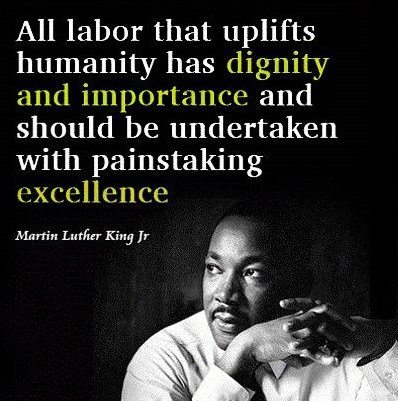

Ted Mitchell, the former Occidental College president nominated by the White House to become Under Secretary of Education, is the founder and CEO of NewSchools Venture Fund, a nonprofit whose goal, according to its tax records, is “to transform public education through powerful ideas and passionate entrepreneurs so that all children – especially those in underserved communities – have the opportunity to succeed.”
Judging by a look at the group’s website, another part of its agenda may be to gut the seniority rights and other job protections currently enjoyed by California’s public school teachers.
This week the site began prominently featuring news about the Vergara v. California trial now unfolding in Los Angeles Superior Court. When called for comment, a NewSchools spokesman said Mitchell’s group was taking no position on the case.
“We believe it’s an important case with broad implications for education,” the spokesman said.
» Read more about: Why Is Ted Mitchell’s Nonprofit Pushing Vergara v. California? »


There was something tantalizing about Barack Obama’s State of the Union speech last night. When was the last time an American president talked about the simple human cruelty of our Dickensian sick leave and maternity policies? Or told CEOs to just do the right thing and raise wages for their workers?
What made Obama’s speech compelling is that he did more than just issue platitudes — he announced his decision to use executive authority to increase the pay of workers employed by companies that contract with the federal government. That will mean a nearly $3 an hour raise for hundreds of thousands of people. In an era of Tea Party-engineered partisan gridlock over pretty much everything, that’s nothing less than a seismic shift.
So why didn’t the State of the Union address leave me popping the champagne and toasting to an impending economic realignment that would reverse the nation’s slide back to the same levels of inequality we faced before the Depression?
» Read more about: Obama’s Speech: So Close and Yet So Far »


Lara Bergthold remembers the afternoon she and Norman Lear arrived at Pete Seeger’s rustic home overlooking the Hudson River, a house Seeger and his wife Toshi had built themselves years before. Bergthold, a prominent political and communications strategist and former executive director of the Lear Family Foundation, was the associate producer of Pete Seeger: The Power of Song, a 2007 documentary about the famed folksinger and social activist, and had recently brought Lear into the project. The two had been chauffeured from Manhattan in a Mercedes sedan and were eager to discuss ideas to improve the film that had so far been shot by director Jim Brown.
“When we pulled up to his house,” says Bergthold, “Norman and I get out of the back, and Pete walked around us and to the driver and shook his hand and invited him to come in for salad. He considered the driver to be the person he should greet first and it didn’t matter that the driver was a nameless person.
» Read more about: Pete Seeger Remembered: A Conversation With Lara Bergthold »


Common wisdom says that the subject of economic inequality, while temporarily in vogue, is still a rhetorical minefield. In the half-century since Lyndon Johnson announced the beginning of a war on poverty, presidents have avoided even using the word “poverty,” for fear of turning off voters. And just as perilous as talking about poverty, apparently, is admitting that a policy tries to attack it through “redistribution.” That term, according to the New York Times, is “explosive,” even “toxic,” in America. It’s a word, says William M. Daley, the former Obama chief of staff, that “you just don’t use.”
There’s evidence, however, that many Americans favor a distribution of wealth and income that’s much more egalitarian than the one we have now. But conservatives believe, and not without justification, that many people also dislike the idea of government taking from some people in order to give to others.
» Read more about: Wealth and the Natural Distribution Myth »


Last week, the U.K. publication The Guardian used an interesting anecdote to describe the key finding of an Oxfam report on global inequality: The world’s 85 richest people now own more wealth than the planet’s poorest 3.5 billion people. All of the world’s wealthiest individuals, Guardian writer Graeme Wearden noted, “could squeeze onto a single double-decker” bus.
The ironic image of the super-rich riding a humble public bus is an apt metaphor for the socioeconomic quandary facing America before President Obama makes his 2014 State of the Union address tonight. Underinvestment in job creation, training, education and public services like transportation put middle-class success out of reach for many Americans, while at the other end of the spectrum, wealth has been concentrated in very few hands.
President Obama’s speech ought to address the central problems of economic inequality and deficit of opportunities and services for many Americans.


Last month two of L.A.’s richest men decided they needed to defend their wealth in a Los Angeles Times opinion piece. The headline read: “It Isn’t a Sin to Be Rich.”
Of course it isn’t. No one has said it was a sin to be rich in a very long time. After all, rich is a state of being. It’s greed that makes the list of cardinal sins.
Naturally, social critics and political figures have spoken about the shrinking middle class. They’ve talked about the social instability caused by the exponential growth of wealth and the relatively shrinking resources of the working poor. Even film makers have produced documentaries describing a few people’s wealth growing so exorbitantly that it virtually pauperizes the rest of us. So apparently the two rich guys felt the sting and decided they needed to defend their class.


The national debate over the quality of public school education and its teachers shifts to a courtroom this morning as day one of Vergara v. California opens in Los Angeles County Superior Court.
Filed on behalf of nine student plaintiffs (including Beatriz and Elizabeth Vergara), the suit seeks to wipe out the core of state teacher employment rights by overturning five California statutes that it claims make it too difficult to dismiss ineffective teachers.
The lawsuit was originally filed in the spring of 2012 by Students Matter, a Bay Area nonprofit created by the wealthy Silicon Valley entrepreneur David Welch and financed partly by L.A. billionaire Eli Broad.
That’s when Students Matter revealed the names of an advisory committee that reads like a Who’s Who of privatized education interests. Heading the list is Students First,
» Read more about: Vergara Trial Targeting Teachers’ Rights Opens »


Andrea Vidales makes $9 an hour taking care of a blind Korean War veteran and an elderly couple in their Merced County homes. Under California’s In-Home Supportive Services (IHSS) program, she spends about 60 hours every week bathing her clients, preparing their meals, cleaning house, paying their bills, driving them to doctors and dealing with other aspects of their medical care. She was delighted, then, when the Obama administration, through the U.S. Department of Labor, announced new regulations last September requiring in-home caregivers to be paid overtime for working more than 40 hours a week.
Her good fortune didn’t last long. On January 9, Governor Jerry Brown unveiled his proposed $155-billion budget for 2014-2015 at a press conference in Sacramento. Under the governor’s budget, Vidales and hundreds of thousands of other home health care workers would be prohibited from working more than eight hours a day, or 40 hours a week.


Last week’s announcements about 2013 earnings by California’s largest public pension funds suggest the agencies may be making significant progress in shaking off the lingering after-effects of the 2008 stock market crash.
The California Public Employees’ Retirement System (CalPERS) said it rode a 25 percent run-up in stock prices to post a 16.2 percent gain for its 2013 portfolio — its best showing in a decade. For its part, the California State Teachers’ Retirement System (CalSTRS) reported an impressive 19.1 percent return on its 2013 investments, led by a 28 percent return on its stock holdings.
The announcements undoubtedly came as welcome news to the roughly 1.6 million California government workers and 860,000 public school teachers represented by the systems. Ever since the 2008 global financial meltdown, their pensions have been in the crosshairs of fiscal conservatives and anti-public pension activists who wish to see the employees’


Last year, as we remembered the life and legacy of Reverend Dr. Martin Luther King, Jr., we focused much of our attention on the 50th anniversary of the March on Washington for Jobs and Freedom. We reflected on the historical words that followed, “I have a dream” and reaffirmed our commitment to keeping the dream alive.
We measured our progress through victories such as the end of Jim Crow segregation, the passage of the Civil Rights and Voting Rights Acts, and the election of our first African American President. We also talked about where we need to devote our efforts for the dream to become a reality.
With that, one year later we are reminded of the inequalities that still exist and the call to action we must all answer: